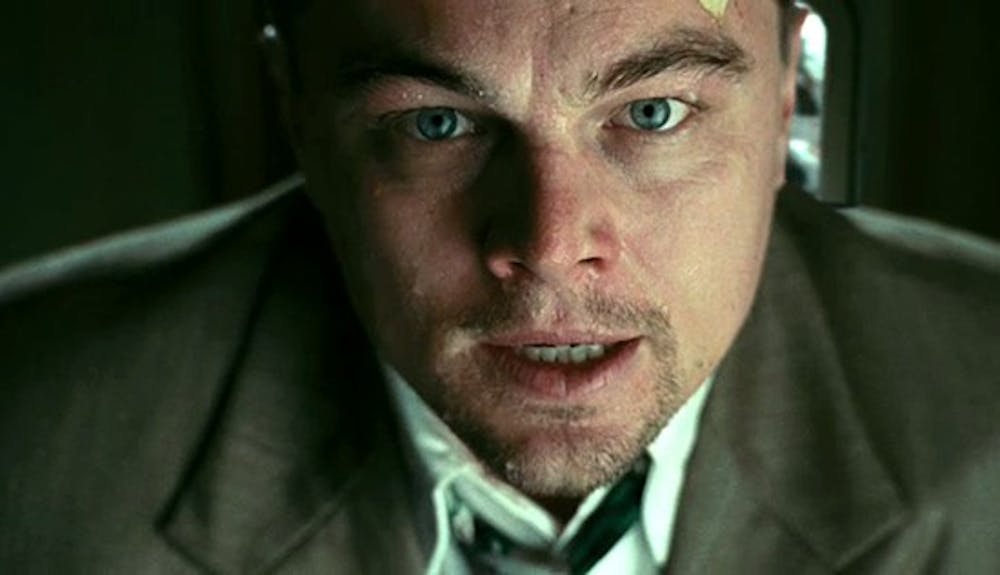Shutter Island, Scorsese and DiCaprio’s fourth collaboration, finds the legendary duo taking more risks than ever before. Set in the 1950s on an island home to a mental institution, the film is a complex, genre-blending thrill ride of psychological horror.
The narrative follows Teddy Daniels (DiCaprio), a U.S. Marshall sent to investigate the disappearance of an inmate who killed her three children. However, he begins to suspect that the facility is conducting unethical experiments on patients and is determined to expose the conspiracy. Obviously, the doctors and nurses don’t want this to happen and Teddy soon finds himself being accused of madness, forbidden to leave the island.
Unlike The Departed, which strictly falls within a specific genre, Shutter Island is the work of a more unhinged Scorsese and he unabashedly draws upon his extensive knowledge of film history. The uneven editing and overly dramatic music revel in B-horror campiness, while the gorgeously-rendered dream sequences recall more art house fare. This, coupled with the brooding shots of Gothic mansions, deadly cliffs and Escher-like interiors results in a refreshing neo-noir aesthetic that is a projection of the characters’ disturbed psyches. We are slowly drawn into this unsettling world, where danger seems to be lurking around every corner, and nothing is as it seems.
For many, the film’s ending will not come as much of a shock. However, Scorsese wisely downplays the “big twist,” and instead focuses on its effects on individual characters. While at times the story can be a bit clunky and hard to follow, the film’s brilliant cast (which also includes Mark Ruffalo, Ben Kingsley, Michelle Williams, Jackie Earle Haley and Patricia Clarkson) manages to inject a deep humanism into the characters, making this tragic tale of loss and guilt even more potent.
Directed by: Martin Scorsese
Starring: Leonardo DiCaprio, Mark Ruffalo, Sir Ben Kingsley
Rated R, 138 min.
4 Stars







